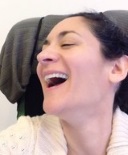|
by
Dushka Zapata
Media Trainer &
Consultant
Here
is a kitfull of tips on how to prepare for a live television interview,
courtesy of media expert and author Dushka Zapata:
Know your
audience. Who
watches the show? What are they most interested in? Collect the information
you need to understand how to frame your story.
Remember that it’s
never about you, even when it’s all about you. Focus
less on your company, less on you, and more about how what you are here to
say applies to others.
Understand the
format of the show. How
long will your interview be? What questions are you most likely to get?
Have they done any research on you or should you begin with a short
introduction? Can you send your interviewer questions you’d like them to
ask you? (Typically, you can.)
Be clear on what
you want to say. Forget
about “messages.” Be succinct. Tell a story. Be visual. Use anecdotes.
Draw a direct, obvious line between what you are saying and why it
matters.
Headline what you
want to say, then say it. “Once
upon a time, there was a little girl called Little Red Riding Hood. She
wore a red coat with a hood and was fond of strolling across the forest…” will
have less impact than “little
girl, attacked by wolf. Wolf dressed in grandmother’s clothing.”
Practice. Develop
soundbites through “headlining” what you want to say (like the Little Red
Riding Hood example above). A sound bite is brief, catchy; and typically
“packages” a lot of what you want to say. Have someone film you a few days
before your interview so you can look at yourself and become more aware of
your body language and facial expressions.
Prepare answers to
your worst questions. What
questions keep you up at night? Writing out how you would handle them is
more helpful (and effective) than pretending they will not come up.
Be here now. Tell
yourself that for the duration of the interview you will not allow your
own brain to distract you. Set aside your worries, your problems, what you
will say, what they will ask you next. Focus on right now.
Wear comfortable,
presentable clothes. Put
yourself in a place where you will not think about what you are wearing.
If your clothes are too tight, too uncomfortable, if you have to
constantly tug or adjust, that is what you (and your audience) will zone
in on. Don’t wear white – the camera adjusts to light colors and the rest
of you will look washed out. Don’t wear patterns; they are distracting.
Bring your
personality. Ignore
anyone who tells you to sound “more excited,” “more alive,” “more like X
celebrity.” You cannot come across as credible or authentic if you attempt
to sound like someone other than yourself.
Don’t look at the
camera. Looking
at the camera is terrifying and disorienting. Also, it’s hard to tell
which camera is on so you could be staring deeply in the wrong direction.
Instead, look at the person talking to you and shut out everything else.
Just before you go
on, take a few deep breaths. Breathing
deeply tells your body that despite the nerves you are not in danger.
Dushka Zapata has 20 years experience in public relations
and media training, and is an author of four books.
More
Articles | Submit
Your Article | PR
Subjects
About
Public Relations Homepage
Contact Us
|



